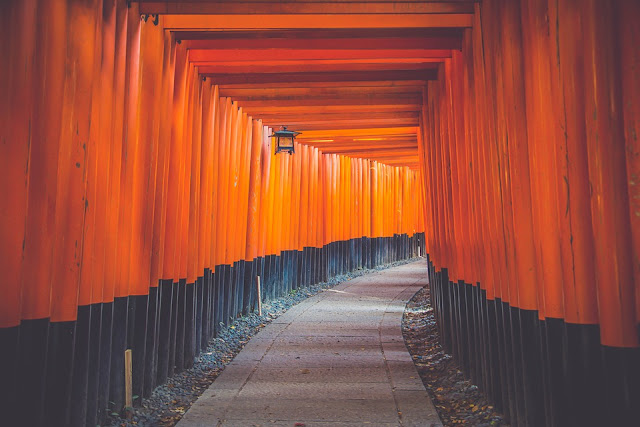Often awakened suddenly in the middle of the night? Beware of this disease
Anxiety? NO! - Quite a lot of people turned out to have sleep problems, especially those caused by frequent waking at night. Unexpectedly, the habit of waking up often at night can make the risk of heart attack increase significantly.
How can this happen?
In a study conducted in Japan and involving 13 thousand participants who checked their nighttime sleep habits, the fact that people who wake up in the middle of the night have a 99 percent greater risk of heart attack and a 37 percent greater stroke.
This poor quality sleep condition can increase the risk of ischemic heart disease, a condition that includes heart attack or angina, chest pain that occurs due to lack of blood and oxygen intake to the heart, which is quite severe. In addition, those who wake up and eventually stay up to more than half an hour will also increase the risk of heart disease by 52 percent.
It is not clear how sleep disorders can affect heart health problems. It's just that, the main researcher Dr. Nobuo Sasaki, from Hiroshima University, said that the decline in sleep quality turned out to have a major influence on the risk of cardiovascular disease. People with ischemic heart problems also tend to have shorter sleep times and wake up more often during the night. Besides that, Dr. Nobuo suspects that when we wake up in the middle of the night, the body will experience stress and this can interfere with breathing, blood pressure, as well as pulse. This condition then triggers tension in the heart.
Other research conducted in the United States also mentions that adults who often wake up in the middle of the night tend to have a 29 percent greater risk of developing arrhythmias or irregular heartbeats. They are also more at risk for cancer, obesity, diabetes, and Parkinson's disease.
Seeing this fact, do not hesitate to check the health condition to the doctor if you often wake up in the middle of the night.
Seeing this fact, do not hesitate to check the health condition to the doctor if you often wake up in the middle of the night.
Often wake up in the middle of the night? Here Is The Cause!
Anxiety? NO! - When drowsiness starts attacking, you will reflexively adjust and conditions around to fall asleep immediately. Duh, it feels good if you can sleep well so that you can wake up in the morning with a fresh body! Moreover, sleep is one of the best therapies for your body.
king up in the middle of the night is more frequent! Because it could be, this is a sign of more severe health problems, such as asthma, heart disease, even Parkinson's disease. Therefore, do not hesitate to consult a doctor immediately!
Hormonal changes
The National Sleep Foundation states that 40% of the total women who are transitioning to menopause will experience sleep problems, one of which is often waking up in the middle of the night. How come? This is caused by changes in hormonal conditions in the body which can eventually disrupt sleep patterns and rhythms. In addition to menopause, hormonal changes in women can also be triggered by several other conditions, such as menstruation and pregnancy.
Pain
Furthermore, one of the reasons why you often wake up in the middle of the night is due to chronic pain or pain suffered. Call it some condition that is often a mastermind, such as arthritis, fibromyalgia, or temporomandibular joint syndrome (a condition in which the jaw muscles are disrupted).
Effects of caffeine
For those of you fans of tea and coffee, the habit of waking up at night may be a common thing. The reason is nothing else because the caffeine contained in the two ingredients can prove to inhibit melatonin production and improve the performance of the adrenaline hormone. As a result, you will wake up at night because the brain remains in a state of 'alert'.
The solution, in addition to reducing the amount of intake, you can also set the schedule for drinking tea and coffee so that it is not too close to bedtime. In addition, drink more water so that caffeine can get out of the body system quickly through urine.
The solution, in addition to reducing the amount of intake, you can also set the schedule for drinking tea and coffee so that it is not too close to bedtime. In addition, drink more water so that caffeine can get out of the body system quickly through urine.
Environmental factors
The lack of conducive environment around you also increases your risk of waking up in the middle of the night, you know. Just imagine! How difficult it is to sleep soundly if the environment around you is too noisy. Therefore, be selective in choosing a place to rest. Try conditions before bedtime are quiet. In addition, you can also turn off lighting sources to get more quality sleep.
That's few things that can cause you to wake up often in the middle of the night. May be useful!
That's few things that can cause you to wake up often in the middle of the night. May be useful!
8 Things That Make Frequently Wake you Up at Midnight
Everyone has their own reasons for staying up late. Whether to do school work that has not been completed, pursue deadlines work, or are waiting for a video call from a lover who is across other countries. However, the most annoying thing is when we constantly wake up in the middle of the night while sleeping.
As a result, even though you have slept eight hours, you will wake up in the morning still sleepy because of disturbed sleep.
Sleep is not really a big problem. But in fact, a study says that 70% of people who have trouble sleeping will experience fatigue in the morning, so that it can interfere with daily activities. Even according to the Center of Disease Chronic (CDC), sleep disorders are associated with the risk of hypertension, diabetes, depression, obesity, cancer, increasing mortality, and reducing quality of life and productivity.
What are the causes we often wake up at midnight?
The following are things that might cause you to be awake during sleep:
1. Pain.
Pain can occur due to stress or deteriorating health. In one study, 15% of Americans reported suffering from chronic pain, and 2/3 also reported having sleep problems. Back pain, headaches, and temporomandibular joint syndrome (problems with jaw muscles) are the main causes of sleep deprivation associated with pain or pain.
2. Mental illness and stress.
You may also wake up in the middle of the night thinking about many things, such as work, relationships with your boyfriend, or college assignments that don't finish. Finally, you always go to sleep with all the anxiety that often leads to stress. And apparently, insomnia is one of the symptoms and causes of depression and anxiety which results in you getting more difficult to sleep.
3. Snoring Snoring is a common condition that can affect anyone.
Usually, snoring habits are more common in men and people who are overweight. Snoring habits, it turns out not only interfere with your sleep partner, but also damage the quality of your own sleep. These habits can be treated with medical help to get a good night's sleep.
4. Jet lag Traveling to a country that has a different time zone,
it can affect your sleep time. This is called jet lag. Our bodies take up to three days to adjust to new light and sleep schedules in other time zones. This can cause you trouble sleeping.
5. Hormonal changes
Menopause, menstruation, and pregnancy are some of the main sources of sleep problems among women. According to the National Sleep Foundation, about 40% of perimenopausal women (people in the menopause transition) will have sleep problems.
6. Diseases and medical conditions
Often, sleep difficulties occur along with other medical conditions. With lung disease or asthma, for example, wheezing and shortness of breath can interfere with your sleep, especially in the morning. If you suffer from heart failure, you can have an abnormal breathing pattern. In fact, Parkinson's and other neurological diseases can cause sleep difficulties.
7. Drink coffee Usually,
everyone who drinks coffee will have more trouble sleeping because of the caffeine contained in coffee. Because caffeine is a stimulant, most people use it after waking up in the morning or to stay alert during the day or even night. While it is important to note that caffeine cannot replace sleep, coffee consumption with caffeine can make us feel more alert and awake at night, by blocking chemicals that induce sleep in the brain and increase adrenaline production.
8. Fatigue The number of activities is often tiring.
I really wanted to be lying on the bed to get to bed and recharge the lost power. However, the feeling of fatigue can make you fall from sleep. Because it turns out, there is actually a big difference between being tired and sleepy. When tired, your body is still in a question mark whether you are tired of stress or physical activity that is draining. Simply put, rushing to bed was not the same as rushing to sleep.
Beware of Anxiety Disorders If You Experience These 7 Signs
Continual generalized anxiety disorder (Generalize Anxiety Disorder) is the most widespread type of anxiety disorder. The hallmark of GAD is that the sufferer worries too much about everyday things, both big and small.
The anxiety they experience occurs continuously every day for at least six months. I was so anxious, they often couldn't sleep well until they often felt tired. "In anxiety disorders, sufferers suffer so often they cannot perform their daily functions. This is what distinguishes normal or normal anxiety," said Sally Winston, PsyD, director of the Anxiety and Stress Disorder Institute of Maryland at Towson.
Fear beyond reason There are anxiety disorders that are characteristic, attached to certain situations such as fear of flying, certain animals, or many other things. If fear is out of proportion to the true risk, it is called phobia. Phobias are often not obvious until the sufferer meets something he fears. "A person with a snake phobia can look mediocre without problems. But, when invited to camp in the open, they just show their extraordinary fear of snakes. To the extent that they are haunted by a snake (who does not exist and never visible) during camping. "
Difficulty sleeping Difficulty sleeping or sleeping frequently, has a close relationship with various health problems, both physical and mental. Almost everyone has experienced sleeplessness, especially when they are having a difficult problem. But, if you consistently have trouble sleeping at night because you continue to be anxious about the same problem (for example, money), or even there is no specific cause of the anxiety you feel, you may suffer from GAD and need to consult a psychologist or psychiatrist .
Stiff muscles or you often do movements that cause tense muscles such as tightening your jaw, clenching your fists, or stretching your muscles throughout your body, are one of the characteristics of anxiety disorders. This symptom can take place without the person being aware of it.
Anxiety disorders are different from the usual nervous or anxious. Anxious or nervous at times is a natural thing. For example, when you first have a job interview or first speak in public. However, there are some people who are often anxious and their anxiety is so strong that it is very disturbing and takes over their common sense.
How do we know that the anxiety we have is still in the normal category or has become a mental disorder? This is not easy. Anxiety has different forms, there are panic attacks, phobias and social anxiety, so the difference between "normal" and excessive is not always clear. But, we can judge that an anxiety can no longer be said to be normal, if accompanied by these symptoms. Worry Regular exercise can help control muscle tension. However, tension may arise again if an anxiety disorder recurs.
Digestive problems Anxiety begins with the mind and often manifests itself through physical symptoms, such as chronic digestive problems. "Irritable bowel syndrome (IBS), which is characterized by abdominal pain, cramps, bloating, gas, constipation, and / or diarrhea, is basically anxiety in the digestive tract," Winston said. IBS is not always caused by anxiety disorders. However, both often occur together and can worsen one another. The intestine is very sensitive to stress and vice versa, chronic digestive problems often make people anxious.
Panic attacks Manifestations of panic attacks can be so frightening. Suddenly you are gripped by an overwhelming feeling of fear, making you feel helpless and panicked. Panic attacks can last for several minutes, accompanied by physical symptoms such as breathing, heart palpitations, tingling or numbness of hands, sweating, weakness or dizziness, chest pain, abdominal pain and feeling hot or cold. Panic attacks are not always associated with anxiety disorders. But, if it happens repeatedly, it might be a category of mental disorder called panic disorder.
People with panic disorder live in fear about when, where, and why their next attack might occur. They tend to avoid places where attacks have occurred in the past. Flashback Often experiencing flashbacks of traumatic events is a feature of post-traumatic stress disorder (PTSD). Some studies, one of which was published in the Journal of Anxiety Disorder 2006, shows PTSD flashbacks often appear in people with social anxiety disorder. There are quite a number of people with social anxiety, who have felt very hurt because they have been ridiculed in public. Usually, they will avoid places or situations that can trigger the flashback to come again. For example, people who are traumatized because they have been ridiculed in public will not like to appear in the crowd or do not like having many friends.
Difficult to connect with others People with social anxiety disorder tend to feel like all eyes are on him. As a result, they become nervous, face red, trembling, nausea, sweating, or difficulty speaking when in one place with several other people. This can make them difficult to establish relationships with new people. In fact, they may find it difficult to maintain good relationships with other people, both at work and at school.
Suddenly Wake Up in the Midnight, This is the Reason
Good sleep quality is not only the duration of sleep for seven to eight hours a night, but also how you get a good night's sleep and feel refreshed when you wake up. However, not everyone has a good and good sleep quality.
Some of us, maybe even you, have experienced the name sleep disturbance, where you wake up between sleep. Can be at midnight or early morning. This general event, according to myths circulating, due to unseen things or beyond human reason. Is it true?
Unfortunately, all these myths are not in accordance with medical findings that reveal the reason why you wake up between sleep. What are the reasons? Let's look at the information compiled by iNews.id, Monday (08/13/2018).
Your Room Is Not Comfortable.
The first thing that has the potential to make you wake up at night or early in the morning is an uncomfortable room condition. For example, too hot or cold, so inevitably make your eyes open to turn on or turn off the air conditioner. The shock caused by these effects on your sleeping body makes you wake up.
You Have Anxiety Disorders
Anxiety or anxiety disorder is a mental health problem that affects the quality of your sleep. When you have this disorder, you will feel a faster heartbeat or nightmare when you fall asleep, so that it can wake you up in the middle of the night. Severe and long-term stress conditions also have a similar effect on the quality of your sleep.
Alcohol drinkers
If you drink alcohol and often drink this drink just before going to bed, chances are alcohol is the cause. Because, drinking alcohol before going to bed will make you need to urinate and increase the likelihood that you will wake up at night to the bathroom.
Sleep Apnea
If you feel jerks when you wake up and feel like you want to breathe, sleep apnea may be the cause. This sleep disorder can slow and stop breathing when you fall asleep. Symptoms include insomnia, snoring during sleep, excessive sleepiness during the day, nightmares, and experiencing respiratory problems, such as shortness of breath or breathing through the mouth.
Audio Keyword:













